After I had finished my training at Hendon Police College, I was informed that I was being posted to Battersea Police Station in South West London with Lavender Hill as its sub-station. It was was a good training ground as there were a number of council estates that had a large poor black and white population. The area was also well known for the then-operating Battersea Power Station and for the Battersea Dogs Home.
At Lavender Hill / Battersea Police Station
From the time of joining the Metropolitan Police Force (later changed to ‘Service’) on 16 June 1980 to my retirement as a result of an ‘injury on duty’ on 4 July 1996, some of the benefits of being a police officer included a reasonable salary including a 13th salary, free off-duty travel on London Transport’s buses and trains, and free housing in police provided accomodation or a generous rent allowance in lieu.
I had applied to be allocated police married quarters and we were given a 2 bedroomed apartment at 1, St. Barnabas House, St. Barnabas Rd, Mitcham in Surrey and I used to drive to work to Battersea Police Station about 20 minutes away by car, I think we had a green Austin Maxi automatic which I taught Dina to drive on, so well in fact that she passed her test first time on this automatic car and she then passed it again on our second geared Triumph car. It was a cold ground floor apartment with cold stone floors and I used to put the electric blanket on an hour or so before we got into bed, and I did this one evening turning the plug switch on, but unbeknown to me the electric fire was also connected to the triple plug and so I inadvertently turned on the electric fire at the same time as this had been placed under the plastic side table of the bed, and whilst we were in the front room watching the film ‘An Officer and a Gentleman’.
Dina and I
We suddenly smelt strong fumes, I went to investigate and discovered our bedroom was well aflame. I called to Dina and we tried to make our escape via the front door and I just about managed to unlock the door and open it and I could smell and taste the poisonous fumes that were being given off by the burning plastic bed in my throat, and we were lucky to have gotten out unscathed! We stood outside in our pyjamas in the freezing cold English winter and unbeknown to us was that Dina was already pregnant at that time with our first child, Golan. We were temporarily accommodated in the opposite empty ground floor police flat. We were all alone with hardly any assistance from any police department, with no furniture and hardly any heating but we got over it and soon we were house hunting and we found a charming newly decorated little house at nearby 16, Thornton Ave, West Croydon, Surrey, which we purchased paying the princely sum of 28,500 pounds by monthly mortgage.
Dina’s first birth was a long drawn out affair of at least 16 hours of labor at the Mayday Hospital in Croydon with a not-so-sympathetic mid-wife called Nurse Black. She was West Indian lady and had obviously assisted in hundred’s of births as she had repeatedly told us, but this was our first child. In keeping with all of our three children’s births, Dina’s parents arrived the day after Golan was born. Golan was born on 9th August 1982 and 8 days later he had the Brit-Milah (religious circumcission) performed on him by one of the top Mohel’s (usually a Rabbi and qualified surgeon empowered to perform religious circumcisions) in England who was a friend of a rich cousin from Stamford Hill with Dina’s parents, her father was a survivor of Aushwitz Concentration Camp and with our cousin Harry from Canada who had been at Auschwitz with Dina’s father.
My son Golan
As a new policeman, working at Battersea was a good learning ground as it was a poorer London district (soon to be fashionable place to live for the up-and-coming affluent), with the Winstanley, Patmore Estate, York Road and the Francis Chichester Way council estates that were inhabited by many poor black and white families. There was a racial problem there and we were advised never to walk under the walkways, where “anything could be dropped on your head”. It’s accurate to say that some of the local police were not exactly sympathetic to the local black population, so much so that as with other districts of London at the time of the famous Brixtion riots and Tottenham riots in 1981, we had riots in Battersea and I was equipped with my make-shift dustbin lid shield in the front line with fellow policemen charging petrol and rock throwing rioters during the riots in Francis Chichester Way, exciting times eh?
Battersea was another flashpoint: ‘A gang of youths attacked four policeman on Sunday afternoon [12 July 1981], striking them to the tarmac floor of the roller skating rink in Battersea Park. Two PCs – Robert Smith and Brian Tullock – were rushed to hospital with serious head wounds. PC Smith needed 13 stitches. “It all started when we answered a call saying a car had been overturned in the park, said Det. Con. Larry Lawrence, “Four of us were in plain clothes but as soon as we identified ourselves we were attacked by about 20 youths carrying hockey sticks and wooden staves. The blows rained down on PC Smith and PC Tullock was given a severe kicking”. Mr Lawrence said a crowd of 200 stood watching. “The only human touch there was a girl who took off her cardigan and wrapped it around PC Smith’s head as he lay bleeding”. A crowd of youths carrying hockey sticks and wooden staves ran through the park during the early evening damaging two cars and throwing petrol bombs at the police’. ‘Later in the evening three policeman were injured in Francis Chichester Way when 35 youths hurled missiles and fire bombs at police lines. The incidents followed outbreaks of violence on Saturday night when 17 arrests were made in Queenstown Road and Falcon Road area’ (South London Press, 14 July 1981).
Although I didn’t pay it much attention at the time, you know what with being young and enthusiastic for the job, I was somewhat resented by my fellow police colleagues at Battersea as it seemed that a number of them seemed to want to come to work in order to do as little as possible in their time at work there. Their jobs were secured so I suppose they thought why should they exert themselves? I, on the other hand believed and still believe that if I am paid to work then I should work (Work frees the soul, was it Martin Bauber that said that? I can’t remember, but it was what the Nazi’s had on a sign as part of their sick sense of humor above the entrance to the Auschwitz Concentration camp as part of the deception that the camp inmates, including my late father-in-law were entering a work camp).
I used to stop many motorists for any number of valid reasons. I disliked using the term ‘just a routine stop’ and would stop them for either minor traffic offences or more serious ones like driving through red traffic lights, and I would issue forms for them to produce their driving documents within 5 days at a police station of their choice (Form HO/RT/1) if they didn’t have them on them. Invariably many offences of no insurance, test certificates or valid drivers license were divulged. My work day was filled with work, paperwork and the occasional arrest, at that time I was concentrating more on driving offences and later I would progress to arrests. Being a converted Jew who obviously had a different religion from the average policeman who would invaribly be a white Christian or Catholic, and I being an active policeman who was basically showing the others up to be lazy, their way of getting even with me was to call me racist names, usually behind my back and to also not want to work with me patrolling the streets, although the newer policemen waited in line for me to work with them as it gave them the opportunity to learn well and to produce results, something they were expected to do as a new officer and something they couldn’t do if posted with an old sweat – the term for an established officer who didn’t feel obligated to produce any results for his days work!
I remember my very first arrest was in Battersea High Street when I was walking alone on foot patrol at night in the pouring rain with not a soul about, when the station’s police van suddenly screetched to a halt alongside me and both of my fellow relief officers jumped out and opened the back doors of the van. The van’s front seat passenger was also supposed to be on foot patrol but had been picked up by his ‘old sweat’ mate as it was raining, and they said to me ‘Go on then’. I was a bit confused as I saw that there was a man in his 40’s laid flat out on the floor of the police van obviously drunk and asleep. I looked at the officer and he repeated ‘Go on then, arrest him, caution him’! So, doing what I had been taught to do at Hendon Police College, I started to caution this man for being drunk and incapable at which point both officers burst out in uncontrolable laughter, but at least I got a lift back with my prisoner to the Custody Suite at Battersea Police Station and managed to stay out of the rain for a while.
I would get the taste for arresting offenders after having been somewhat miraculously posted as the radio operator on Battersea’s and Lavender Hill’s Area Car, ‘Whiskey One’. Up to then I had been posted as either on foot patrol or as Station Officer/Coms at our nearby sub-station Lavender Hill. The Area Car driver was like Houdini in that he would appear out of nowhere if there was an arrest to be had, and if you were slow saying the caution then he would grab their arm, caution and arrest the offender and put him in the back of the car before you could say ‘Jack Robinson’, and then he often would ask to read my arrest notes to make sure that he had got all the circumstances of ‘his’ arrest correct! And who would often end up going to court, more often than not on a day-off thereby earning lots of overtime? Not me! I did learn alot from him and he too was somewhat ostracised by his fellow officers for having a high work and arrest rate and they always ribbed him about the amount of overtime he was making, but he carried on relentlessly.
I remember that the ‘thing’ used to be that after you had worked 7 nights, 10pm – 6 am straight and were then facing a ‘quick changeover’ on the Monday when you would return to work for late turn from 2 pm – 10 pm after having finished your shift at 6 am that morning, some of the relief would go to the pub at nearby Covent Garden Flower Market at Nine Elms for a few pints of beer. I only went one time and that was more than enough for me!
Dina and I had come to the realization that life in England wasn’t so warm to say the least, and we both had a desire to return to Israel, particularly since the birth of our first child Golan we felt that life in a kibbutz, like we had experienced as a young couple would be ideal for newly weds, we had married on 18/10/1979 and then had flown to England shortly thereafter. We decided to sell our lovely newly acquired home in West Croydon, it was then at the start of the first property boom but there had been rises but also there had been sudden downfalls in house prices so it still wasn’t a ‘sure thing’ to invest in property at that time, but of course in hindsight we should have rented the house out and reaped the rewards as its value grew, but no-one knew just how much property values would become inflated and we sold our house for 32,000 pounds, making a small profit and now it would be worth something in the region of 250,000+ pounds or more!
When I resigned from the Police at Battersea in 1983, my details as a serving officer were removed in accordance with proceedure. As an example of the behind my back type of anti-semitism that I faced at Battersea, look at the removal report to the left that contains the typical anti-semitic stereo-typical trait that all Jews have ‘Hooked noses’ and I guess that someone else noticed this anti-semitic stereo-typical description and changed the shape of my nose to ‘Bulbous’!
Because of the PTSD that I later would suffer from in my police career, I recently sent a request to the Metropolitan Police to send me my personel file from my period of service at Battersea under The Freedom of Information Act as I have blanks in my memory as a result of the PTSD and hoped to fill them in by reading my personel file, they refused to release it to me, and so I wonder just how many other obvious anti-semetic references are recorded on my personel file!
We Leave
I resigned from the Metropolitan Police and on March 6 1983 and we moved back to Israel and to the kibbutz were we had first met at Kibbutz Hagoshrim in the North of Israel, not far from the Lebanese border and we were given as a new family a nice modern stone cottage with its own little garden. Life was good at first, I went back to work in the cotton fields, how I loved working outside in the sunshine all day in just a pair of shorts with the river, a tribute of the River Jordan nearby to dive into when it got too hot. Dina went to work in the children’s house, but we soon realized that things were different and it wasn’t the same feeling as when we had been a free young couple, for now we had commitments, commitments to the kibbutz and it seemed that everyone wanted to know and seemed to know everyone else’s business and we had very little say in the way that our baby son Golan was brought up. We were told by a children’s house kibbutz member that Golan firstly belongs to the kibbutz and then to you! By this time I was fast approaching the age of 30 and if we were to return to England and if I was to re-join the police then it had to be before the age of 30 as that was the age after which you were considered to be too old to join the police. We made our decision and left the kibbutz, a decision we have not regretted, albeit that without doubt life can seem to be almost idyllic on the kibbutz, but it also can be boring and monotonous and if you’ve lived the faster city life and had been used to buying what you want then kibbutz life isn’t for you.

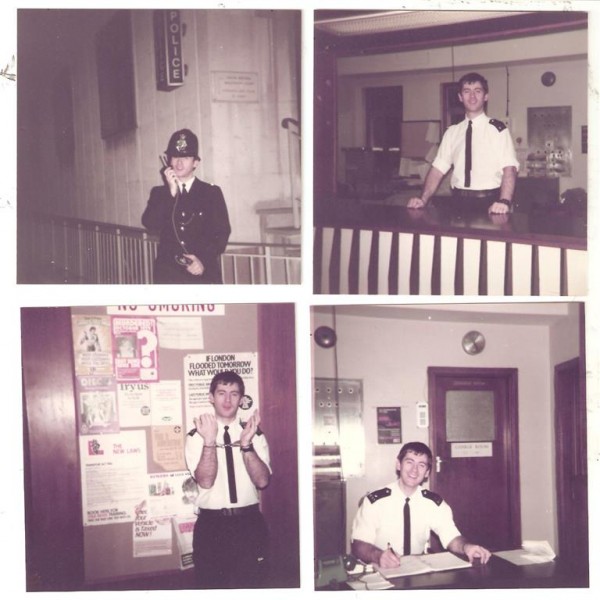
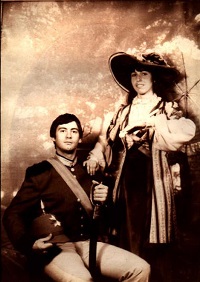
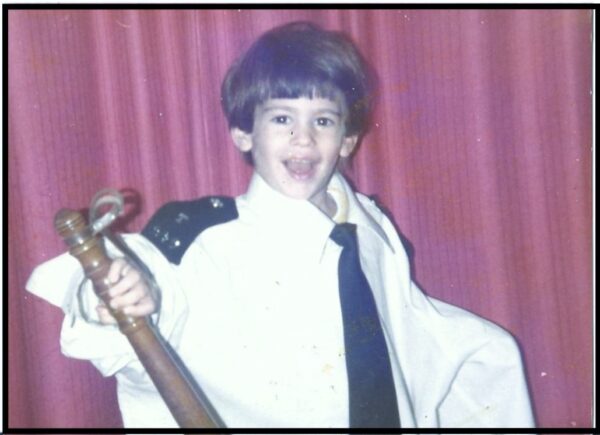
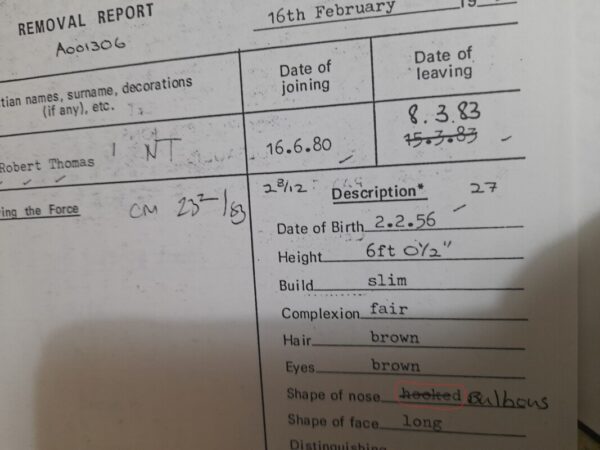
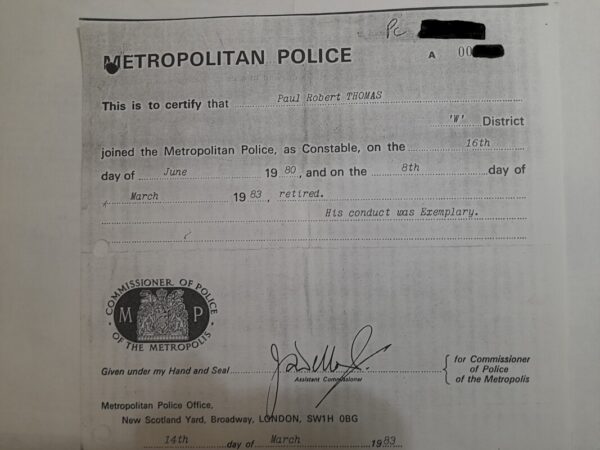
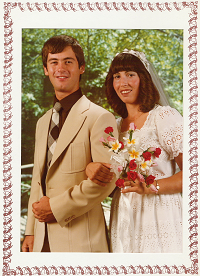
Recent Comments